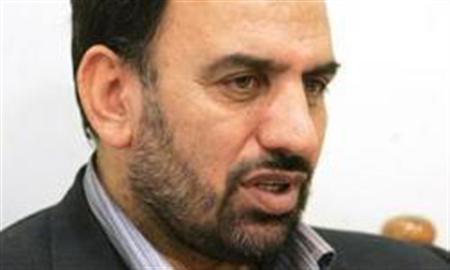|
A senior Iranian legislator condemned the assassination of Iran's nuclear scientists by terrorists, and said Tehran is pursuing the case at international bodies... |

"…assassination of Iranian nuclear scientists by arrogant powers and their hirelings inside the country is not an issue which can be forgotten and will be seriously pursued by the Islamic Republic of Iran," member of the parliament's National Security and Foreign Policy Commission Mohammad Karami-Raad told reporters on Saturday.
He further underlined the peaceful nature of the Iranian nuclear program, and reminded that the civilian nature of Iran's nuclear activities has been acknowledged in the International Atomic Energy Agency (IAEA) reports and the Non-Aligned Movement (NAM) member states.
In the fifth attack of its kind in two years, terrorists killed a 32-year-old Iranian scientist, Mostafa Ahmadi Roshan, and his driver on January 11. The blast took place on the second anniversary of the martyrdom of Iranian university professor and nuclear scientist, Massoud Ali Mohammadi, who was also assassinated in a terrorist bomb attack in Tehran in January 2010.
The assassination method used in the bombing was similar to the 2010 terrorist bomb attacks against the then university professor, Fereidoun Abbassi Davani - who is now the head of Iran's Atomic Energy Organization - and his colleague Majid Shahriari. While Abbasi Davani survived the attack, Shahriari was martyred.
Another Iranian scientist, Dariush Rezaeinejad, was also assassinated through the same method on 23 July 2011. Reports said that the terrorist attacks on Iran's scientists were joint operations by Israeli spy agents and the anti-Iran terrorist Mojahedin-e Khalq Organization (MKO).
The NBC News said in a report in February that Mossad has financed and trained the MKO to assassinate Iranian nuclear scientists. Two senior US officials, speaking on condition of anonymity, confirmed to the NBC News that the MKO was to blame for the series of assassinations against Iranian nuclear scientists.
"All your inclinations are correct," said one of the officials while speaking about the group's role in the assassinations and Tel Aviv's support for the group.
The US officials said the US government was aware of the assassination campaign.
Meantime, a later report by the New Yorker revealed that the US special forces have funded and trained the MKO against Iran. Seymour Hersh, a prominent American investigative journalist, said the former US administration supported the MKO by training its members at a secret site in Nevada.
"The site, some 65 miles northwest of Las Vegas, was once used for nuclear testing, and now includes a counterintelligence training facility and a private airport capable of handling Boeing 737 aircraft," Hersh wrote in an article published in the New Yorker online weekly magazine on Thursday. "It was here that the Joint Special Operations Command (JSOC) conducted training, beginning in 2005, for members of the Mojahedin-e Khalq," he added.
The American journalist went on to say that a former US intelligence official had told him that the administration of George W. Bush began providing MKO agents with terror training in Nevada in 2005.
"'We did train them here, and washed them through the Energy Department because the DOE (Department of Energy) owns all this land in southern Nevada,' a former senior American intelligence official told me. 'We were deploying them over long distances in the desert and mountains, and building their capacity in communications-coordinating ... is a big deal,'" he wrote.
He further noted that MKO members were trained in areas geographically similar to those in "northwest Iran." This comes as MKO has been on the US State Department's list of terrorist organizations since 1997. The terrorist group is on the black list of many other countries and organizations as well.
"Despite the growing ties, and a much-intensified lobbying effort organized by its advocates, MKO has remained on the State Department's list of foreign terrorist organizations - which meant that secrecy was essential in the Nevada training," Hersh explained.
